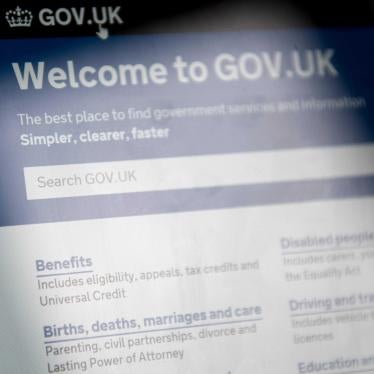Today’s Westminster debate on the role of the UK intelligence and security services is long overdue. Four months after the Guardian newspaper first published details of mass surveillance by the UK’s Government Communications Headquarters (GCHQ) and the US’s National Security Agency (NSA), UK ministers still refuse to acknowledge that anything inappropriate has occurred or that they have anything to explain.
While the US administration hints at changes to the NSA operation, Prime Minister David Cameron offers nothing of the kind in the UK. Indeed, just this week he stepped up attacks on the Guardian, issuing a vague threat to act against the newspaper should it continue to publish on these issues.
Cameron needs to tackle some of the big unanswered questions of this whole affair. Four in particular are worth highlighting. Perhaps parliamentarians could raise them.
-
In domestic law, under the European Convention on Human Rights and through its ratification of relevant international treaties, the UK has a clear obligation to uphold the right to privacy. Is the UK government really claiming that GCHQ’s mass interception and collection of communications data of millions of innocent UK citizens has not infringed their right to privacy?
-
What is the legal basis and constraints under which GCHQ has intercepted and collected data on the citizens of other countries, and what safeguards limit how the UK’s intelligence agencies may use, retain, or share this data with third parties?How is the UK safeguarding the legitimate privacy interests of these individuals?
-
Does the UK government think that existing oversight and accountability mechanisms in this area are really adequate and sufficiently independent to prevent abuse of surveillance powers? The interception of communications commissioner is appointed by the prime minister, reports directly to him, and examines – retrospectively – only a small number of interception warrants. Furthermore, technology has evolved dramatically since the UK’s new law on intercepting communications was introduced 13 years ago. The inquiry to be carried out by the parliamentary Intelligence and Security Committee is a positive step. But given the committee’s status and previous record, it’s far from clear that it has the genuine independence needed to scrutinize and hold the intelligence agencies properly accountable.
- How does the UK government assess the impact of these revelations on its international standing and credibility? The UK has been a leading member of the Freedom Online Coalition, a group of governments that have made strong public commitments to protect human rights online. But the UK’s credibility on these issues is surely now in tatters?
No-one disputes that the UK and other governments have a duty to protect national security and prevent crime. But there is an important distinction between taking steps that are necessary and proportionate to achieve these aims and indiscriminately monitoring the communications of millions of people in the UK and elsewhere who are under no suspicion whatsoever.
British parliamentarians should make that point forcefully in today’s debate and call for a fundamental review of the regulatory framework in this area. This is essential to restore public confidence and better safeguard the right to privacy.









